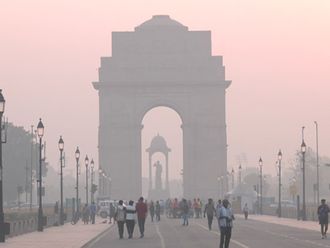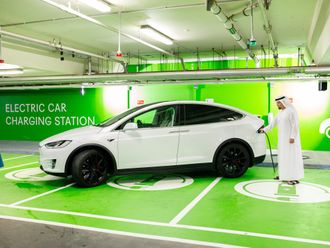Khalifa Port, which opens today in Taweelah — about 40 kilometres from Jebel Ali port — will not only change the way goods are transported into the emirate but will also have a profound impact on the overall economy of Abu Dhabi and the UAE.
In its first phase, the port will be able to handle an annual 2.5 million twenty foot equivalent units (TEUs) or containers, which can go up to 5 million, plus 15 million tonnes of general cargo. Once the second and third phases are completed, the port is expected to have a capacity of up to 15 million containers a year.
The project is part of the Abu Dhabi Government’s 2030 Vision that will elevate Abu Dhabi’s position as a major player in the region’s economy. Khalifa Port is part of the Khalifa Industrial Zone Abu Dhabi (Kizad), where the government is developing a major industrial cluster. It will be linked directly via an expressway to Abu Dhabi, Dubai and Al Ain.
The government has already developed a major power plant in Taweelah which will ensure uninterrupted power to the port in addition to the construction of a large aluminium smelter within Kizad. A number of people have committed investments in industries and offices to benefit from the facilities.
The project will also be connected to the UAE’s Union Railway in order to fast-track industrial cargo. The Abu Dhabi Government is developing a number of industrial areas as part of its plan to diversify its growing economy. It is also developing a petrochemical cluster in Ruwais that will in turn help develop downstream petrochemical industries, a manufacturing cluster in Industrial City of Abu Dhabi (ICAD) in Mussaffah and an aerospace cluster in Al Ain, which will manufacture aircraft components for Boeing and Airbus as well as develop the country’s own aircraft.
The opening of the port is taking place at the right time, when all other facilities are developing in tandem. The Abu Dhabi Government has invested Dh26.5 billion in the port and Kizad so far. It will help transform Abu Dhabi’s economy.








